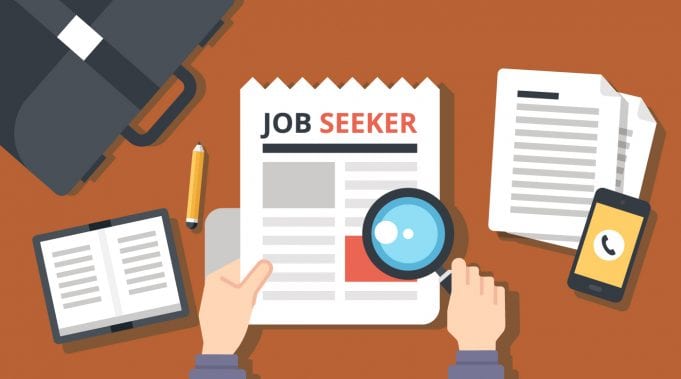When a worker seeks to get a job, he usually produces a CV that highlights his main qualities. This document should present your professional profile, consisting of your academic training, previous work experiences and practical knowledge.
Two types of skills are included in the preparation of this document. In other words, those that can be studied and learned in a classroom; and those that are acquired through experience, and can only be developed by human beings, such as creativity or empathy.
Every year, companies establish directly or indirectly what they hope to find in their future employees. The economic and labor crisis is a reality. Furthermore, everything is complicated by the speed at which the world moves, especially the technological one and its implication in multiple social changes. All this added up makes the competitiveness for a job greater and implies a greater preparation and a greater development of our skills to stand out from the rest of the people. We will present to you both types of skills you will need.
1. Computer literacy and coding

Knowledge of own web programming languages are a plus and stand out among the skills. It is necessary to have knowledge of HTML and CSS. We would also add that knowledge of content managers (WordPress type) is important, as well as their operation and design to get the most out of this tool. Also, knowledge of Word, Excel, PowerPoint and similar are obligatory.
2. Communication in social media
We live in a connected world and communication is one of its essential pillars. The social media revolution is here for almost a decade. That is why they need workers who understand and know how to use social media effectively to serve their users/clients, so that they can sell their products and services, and to positively grow their brand perception. Knowing how to use social networks and their tools will expand job opportunities.
3. Languages

Without a doubt, knowing languages is an essential skill in todays world. We live in a globalized world and fluency in languages is a great asset, especially when combined with international experience and understanding of different cultural contexts. Knowing at least one language is must and a real advantage over other candidates will come from knowing two languages.
4. Fast typing
Since working on a computer is an everyday thing for most professions, then it is clear to you why you need to know how to type fast. No one will have the patience to wait for your slow typed responses, and there are so many business tasks that if you don’t type fast like a typist, you won’t be able to complete all the tasks you have. As Easytype suggests, it may be best to do a typing speed test first, and then see if you’re fast enough or need to improve.
5. Learn to accept criticism

The best way to avoid criticism is to listen to it, reflect on it and make the necessary changes so that it does not happen again. The day to day work must be continuous learning, so it is normal to make mistakes, and even positive if they help us evolve and learn. Sometimes it may be that we do not agree with the reproach of a superior, but rightly or wrongly, there is no other choice but to be proactive.
The worst attitude in these cases points out the expert in labor issues, is to become defensive. On the one hand, it will prevent us from learning from the error, while on the other hand, it will generate an unnecessary discussion, in most cases, even if we are right, we are bound to lose since the last word is usually not that of the worker.
6. Solving capacity
The last thing a boss expects of his workers is for them to create trouble. If one comes up, it is best to present it with many ideas how to solve it. Always be proactive and decisive in order not to burden superiors with more work, which is what is expected and valued by a good employee.
7. Motivation and confidence

To advance and achieve work objectives, it is essential to have a good dose of self-confidence. If we do not believe in what we do, in our capacities, it is difficult for others to do it. The first step to reach the goals is to visualize them, to realize that we are capable of reaching them and to strive day by day.
8. Do not lose sight of ethical values
The jungle that some workplaces have become is causing the most basic moral principles to be neglected. Ultracompetitiveness is prevailing over collaboration, which can lead us to neglect ethical values. On many occasions, this environment makes workers forget that they work for the same company, that they have common objectives and that they are colleagues, rather than enemies.
9. Know how to work under pressure

As writer Robert Louis Stevenson said, “Life is not a matter of having good cards, but of knowing how to play a bad hand well.” Many times we are forced to work against time and other obstacles that hinder our work. Therefore, getting used to managing pressure, controlling stress situations and keeping calm will help us to get ahead in the best possible way and earn points in our professional career. Achieving the assigned deadlines is one of the most valued things by employers today.
10. Teamwork
Collaboration and coordination with other colleagues are increasingly important requirements when we carry out group tasks. The complexity of many jobs requires them to be carried out as a team, for which it is necessary to know how to assume responsibilities, fulfill the demands as well as possible and have certain leadership skills.
11. Planning

Time management is essential to fulfilling the tasks, at least with the most important ones, knowing how to discern between priority and secondary. For this, it is necessary to have a good capacity for planning, discipline, perseverance and awareness of how far our capabilities can go so as not to burden ourselves with too many tasks.
Conclusion:
Work on yourself, constantly learn new things and improve. Also, be confident in yourself. And every employer will notice that, and make employment easier for you.









